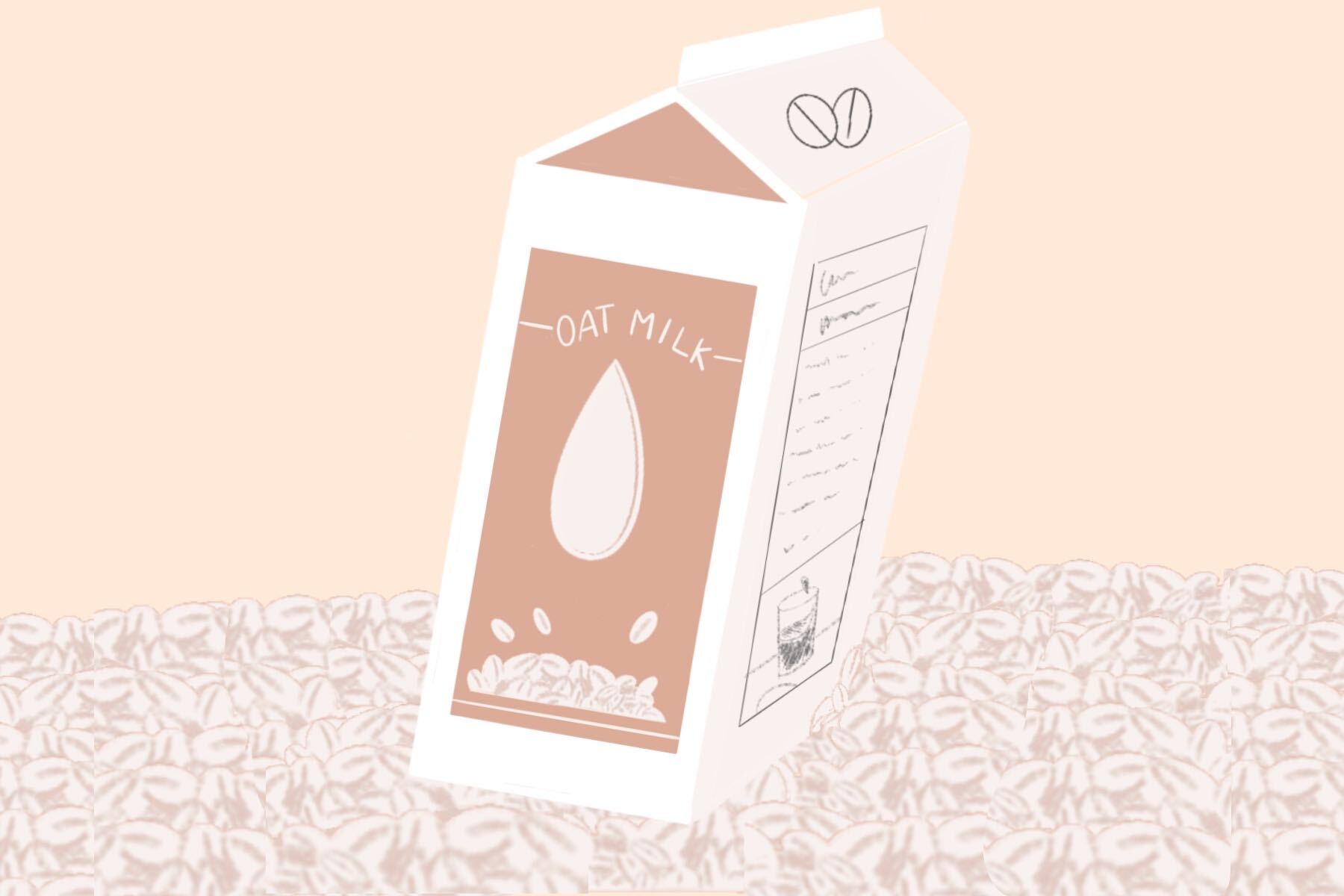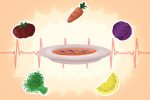My first impression of Planet Oat oat milk in the dining halls of Columbia University was “Wow, the vegans have done it again.” Next to all the almond, cashew and soy milks, I just thought oat milk was another plant-based luxury — overpriced, powdery plant water that only high-class hippies would drink.
As I began learning about oat milk, I realized that I had underestimated its assets. When I decided to go vegetarian two years ago, I did not take into account the environmental benefits of cutting animal products out of my diet, but oat milk has since turned my attention to the importance of eating sustainably.
I started my vegetarian journey after gaining inspiration from YouTube, watching influencers like Kicki Yang Zhang make vegan food prep videos. I grew up with the impression that vegetarians and vegans ate grass, and gave up meat because they were crazy animal lovers.
But as I started to watch more cooking videos online and researching vegetarianism, I encountered many different arguments for cutting meat out of your diet, including ones grounded in animal rights, economics and feminism. I ended up going vegetarian for mainly health reasons; since then, I haven’t really thought about the reasons that I continue to avoid meat.
When I went to college, I met a lot of other vegetarians and vegans. Up until then, I’d made fun of how elitist vegetarianism was, poking fun at the “organic,” “non-GMO” and “farm-raised” labels slapped on items at Whole Foods and Trader Joe’s. But when I teased friends who carried stolen cartons of oat milk from the dining halls back to their rooms, their explanation for their obsession with the drink made me rethink the reasons I went plant-based in the first place.
They convinced me that oat milk was superior to all other milk alternatives for many reasons. Oat milk is not only one of the better tasting milk substitutes, but it’s nutritionally similar to milk, and most importantly, it is the most sustainable.
Taste
Dairy milk is known for its creamy, buttery taste as well as its culinary versatility. Vegans, unlike vegetarians, cut dairy out of their diet for many reasons, often replacing dairy milk with oat, almond or soy milks. Oat milk is a great example of something plant-based that doesn’t compromise the taste and flavor of traditional food products. Unlike nut milk or soy milk, oat milk is thicker and creamier, making it most similar to dairy milk.
Oat milk is also praised for its relatively neutral taste. It’s a perfect substitute for creamer when it comes to coffee. Almond milk, in my experience, is too watery in coffee and often separates when poured into hot beverages. Soy milk has a distinct flavor that clashes with the roasted undertones of coffee. When it comes to taste and consistency, oat milk trumps other alternative milk.
Nutrition
When I drink milk, which is rare, it reminds me of my childhood where every morning, I would drink a cup before going to school. Dairy milk is a staple in kids’ diets because it is high in calories, fat and many essential vitamins and minerals. Out of all the milk alternatives, oat milk also has the most similar nutrient levels to dairy milk.
Almond milk is lower in calories, but higher in sugars, and has much less protein than oat milk. Almond milk is also a no-go for those allergic to tree nuts. Oat milk is gluten-free, nut-free and dairy-free. It is full of nutrients like calcium, potassium, iron, vitamin A and vitamin D. Soy milk tends to have more protein than oat and almond milk, but less than dairy milk. Even though it may seem like dairy has the most benefits nutritionally, there are other reasons outside of being lactose-intolerant to opt for plant-based milks.
Environmental Impact
When I asked my friends why they were so obsessed with oat milk, they talked about their reasons in terms of carbon footprints, reducing emissions and water usage. Up until then, I hadn’t researched much into the environmental impacts of going vegetarian or vegan, since global warming seemed like something too big to be affected by a mere individual diet change.
When I looked into the environmentalist argument for going plant-based, the statistics about dairy farming and meat-farming were appalling. Cattle farming releases more greenhouse gases than any other food production industry. This is in part due to animal waste producing methane, which has a 23 times higher Global Warming Potential than carbon dioxide.
Beyond just carbon emissions, water usage is also a big problem in food production, and animal farming is the largest culprit. More than half of the water used in the United States today is for animal agriculture. A study conducted at Oxford University found that producing a cup of cow’s milk produced three times more greenhouse gasses than a cup of any plant-based milk. Overall, the environmental impact of supporting the dairy industry is much more harmful compared to plant-based milk.
Even comparing between different alternative milks, certain plants require more water to grow than others as well. When you compare the environmental impact of producing oat milk compared to almond and soy milk, oat milk is the least harmful.
Though almond farming is better than dairy farming when it comes to greenhouse gas emissions, to produce a single glass of almond milk requires 130 pints of water. Almond farming not only requires high water usage but it also negatively impacts the bee population. Soy is grown primarily in South America, where the Amazon rainforest is being deforested to make room for farmland.
From the environmentalist view, oat milk does the least harm to the planet. It uses significantly less water than almond milk: 1,929 gallons per pound for almonds, compared to 290 gallons per pound for oats. Since all plant-based milks are more environmentally sustainable than dairy milk, with oat milk’s great taste and overall superior nutrition, it seems to be the milk alternative winner.
Oat milk, for me, isn’t just a great creamer for my coffee, or something to make fun of vegans for. It represents my awareness of where my food comes from. Being vegetarian for me is a continuous learning process. It’s these small decisions, like deciding which milk to drink, that sparks change on a larger scale.

















